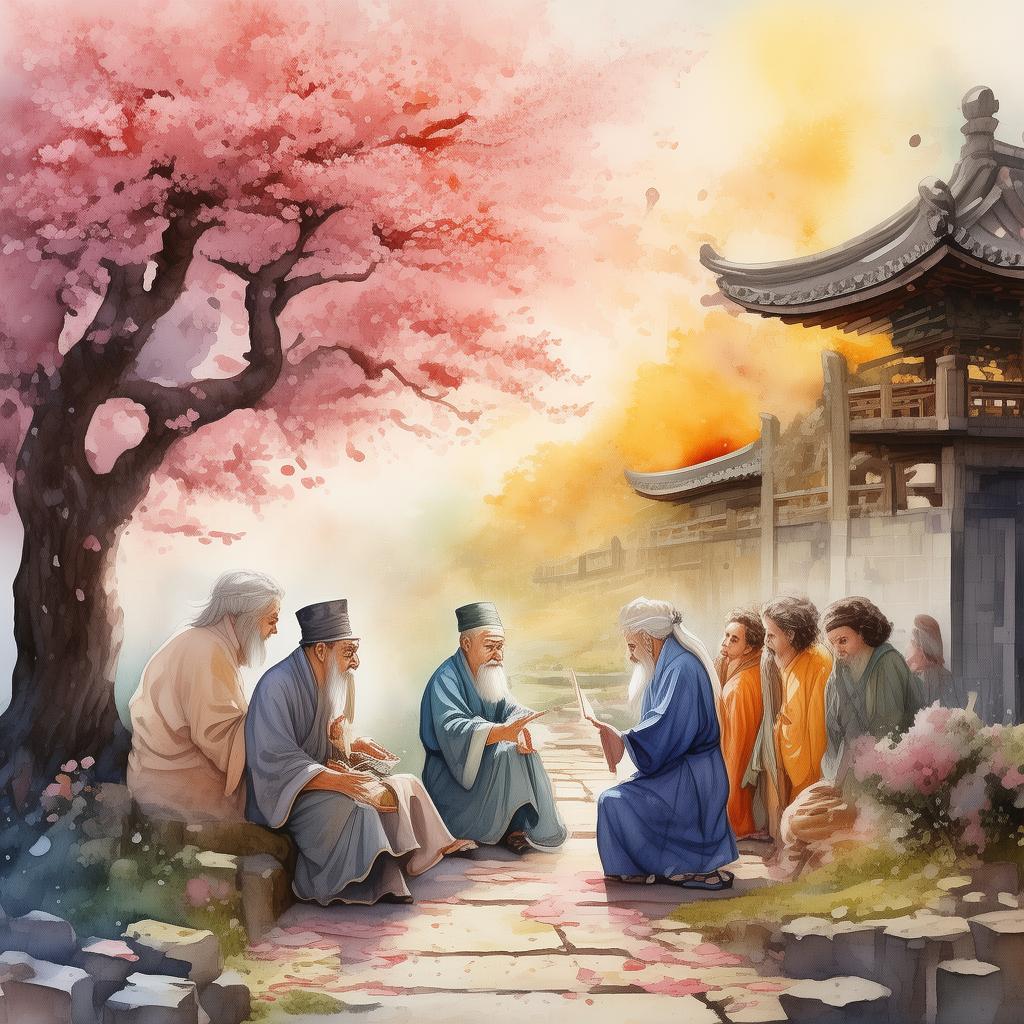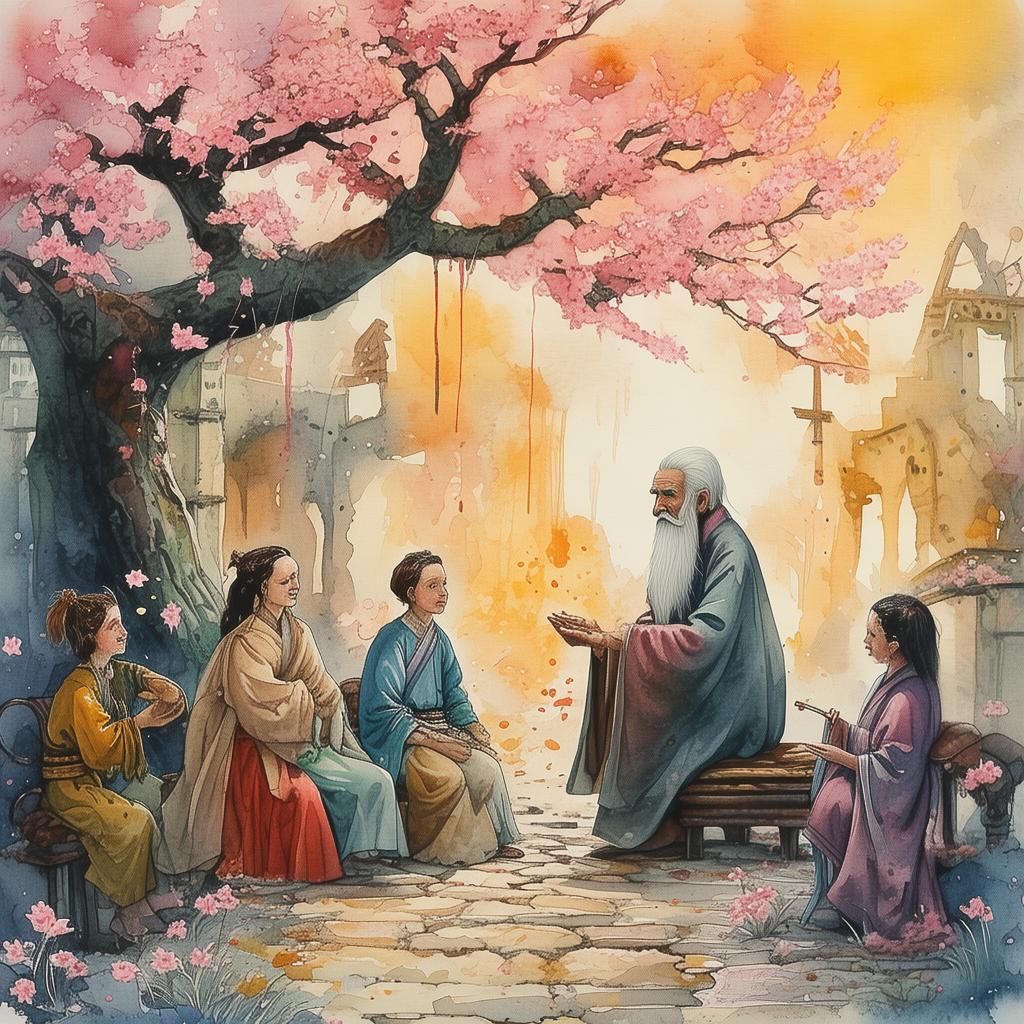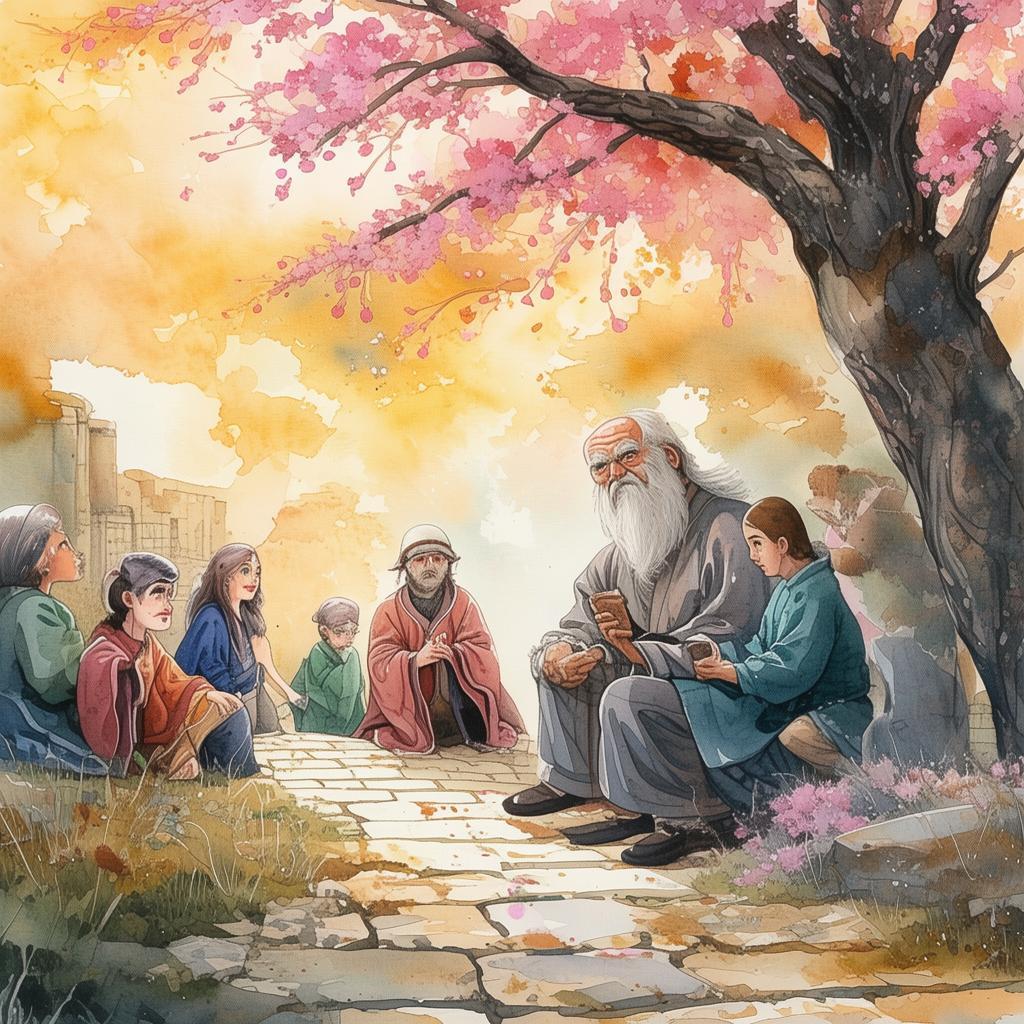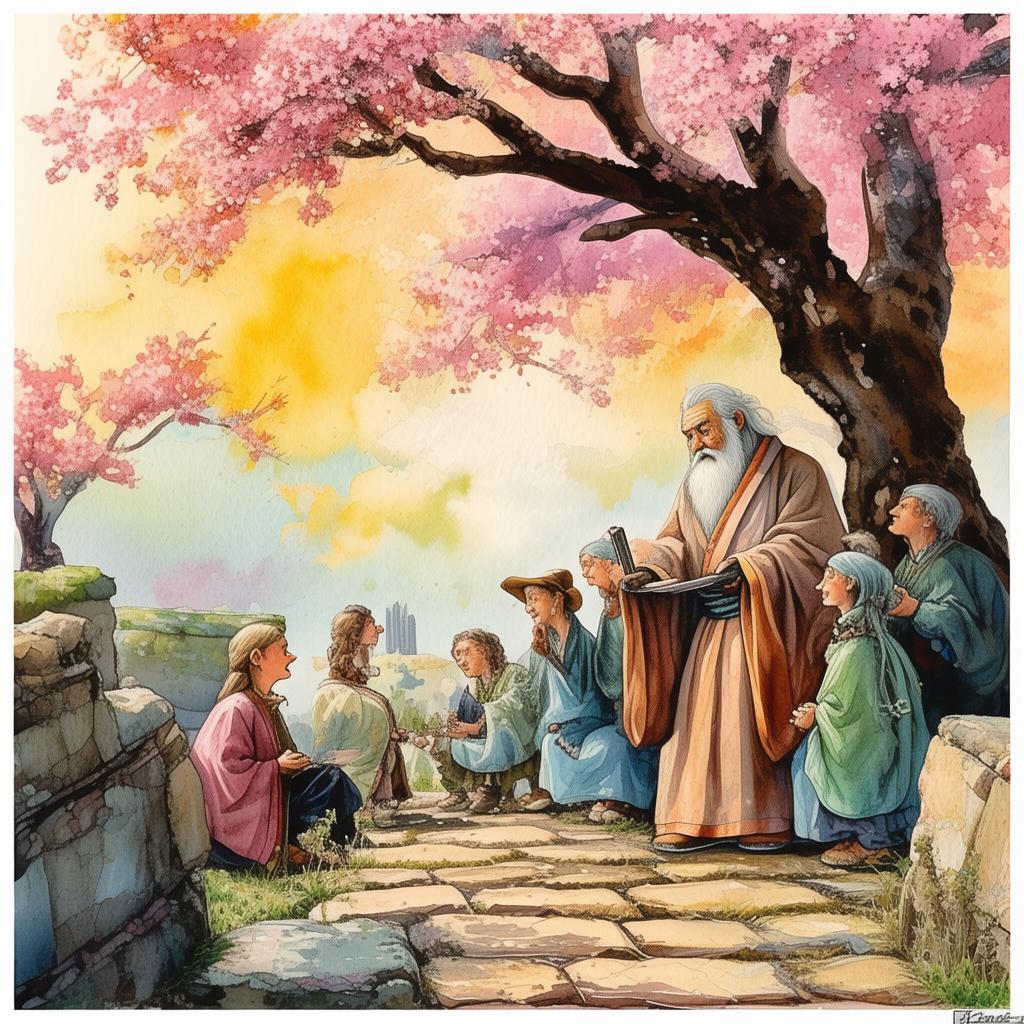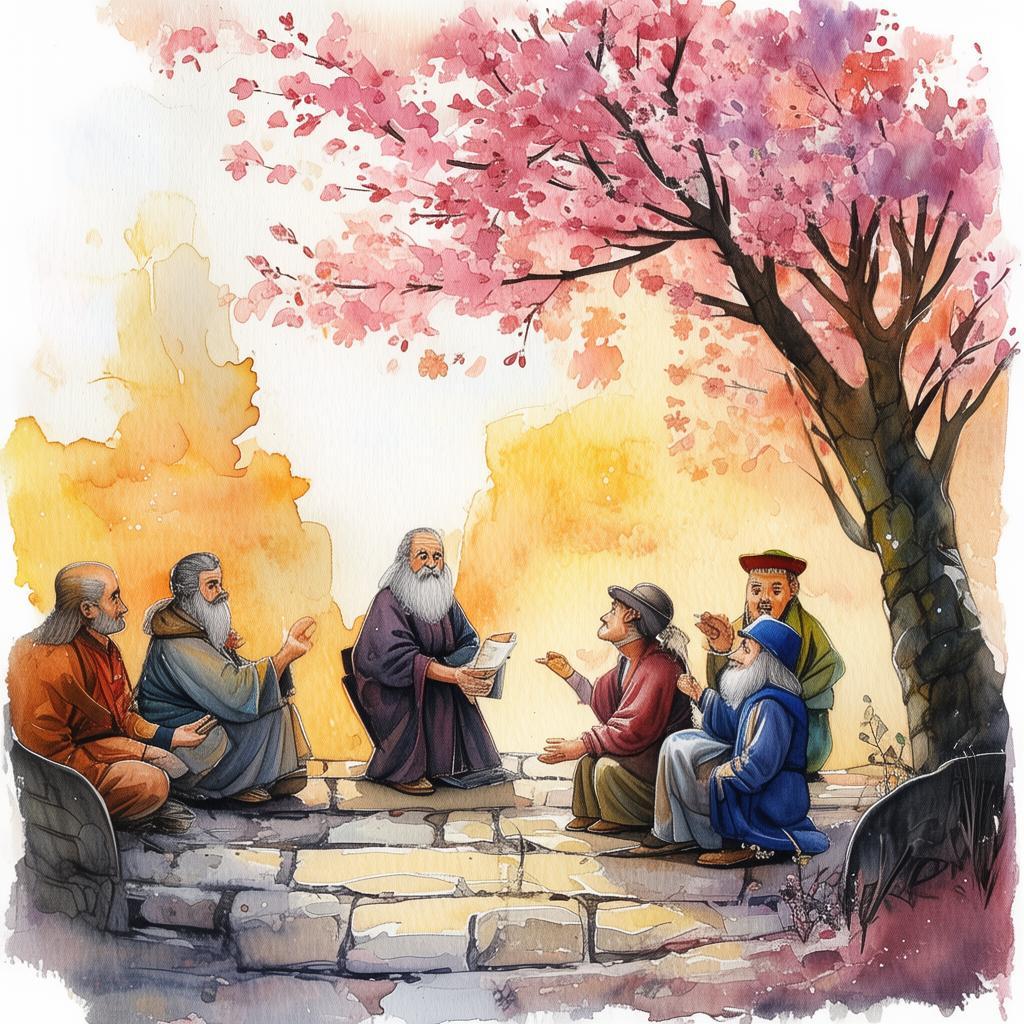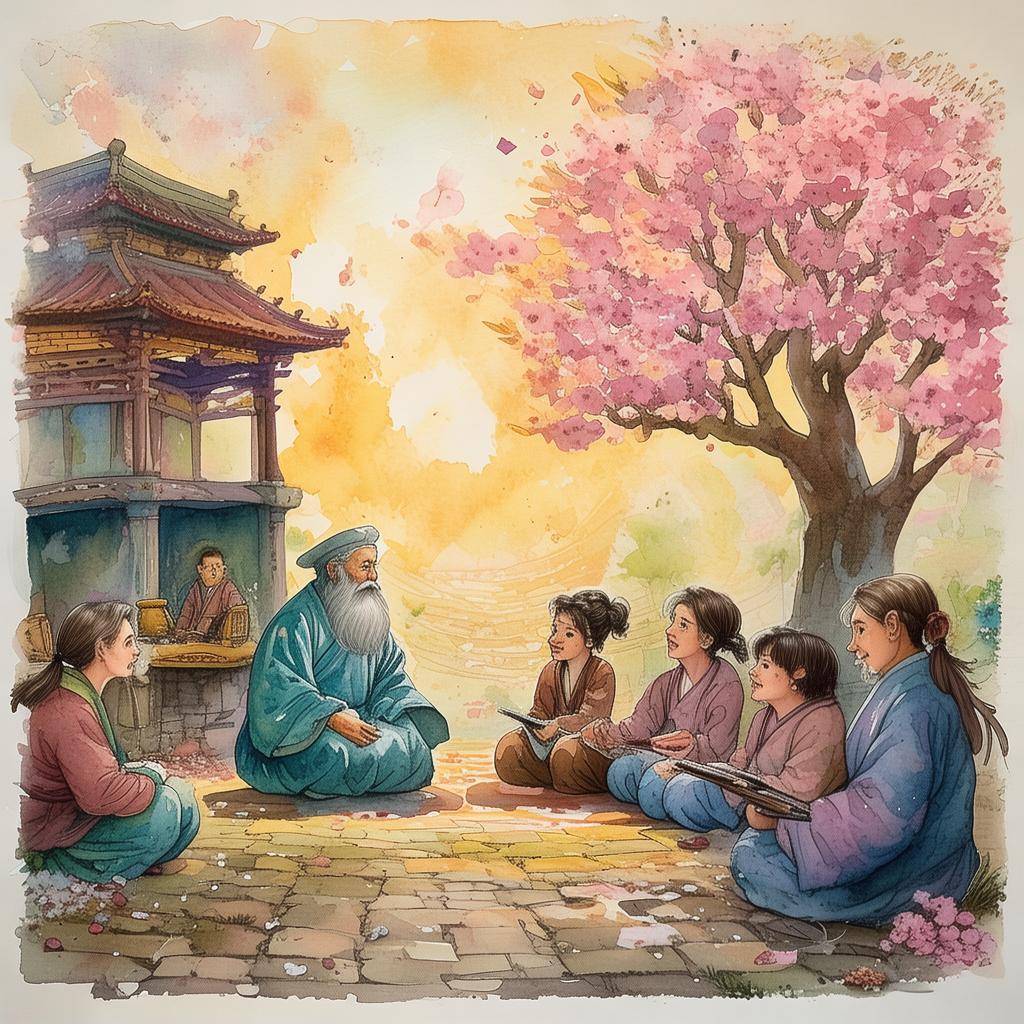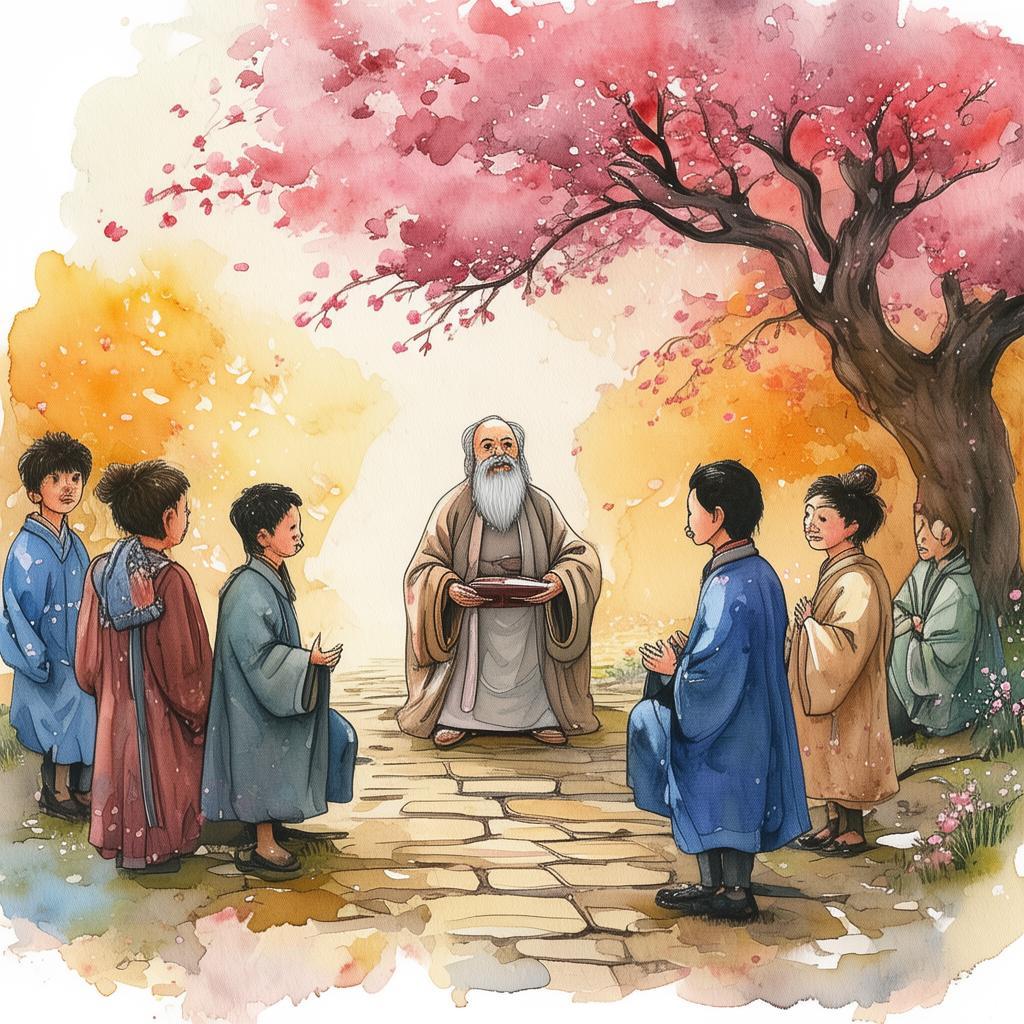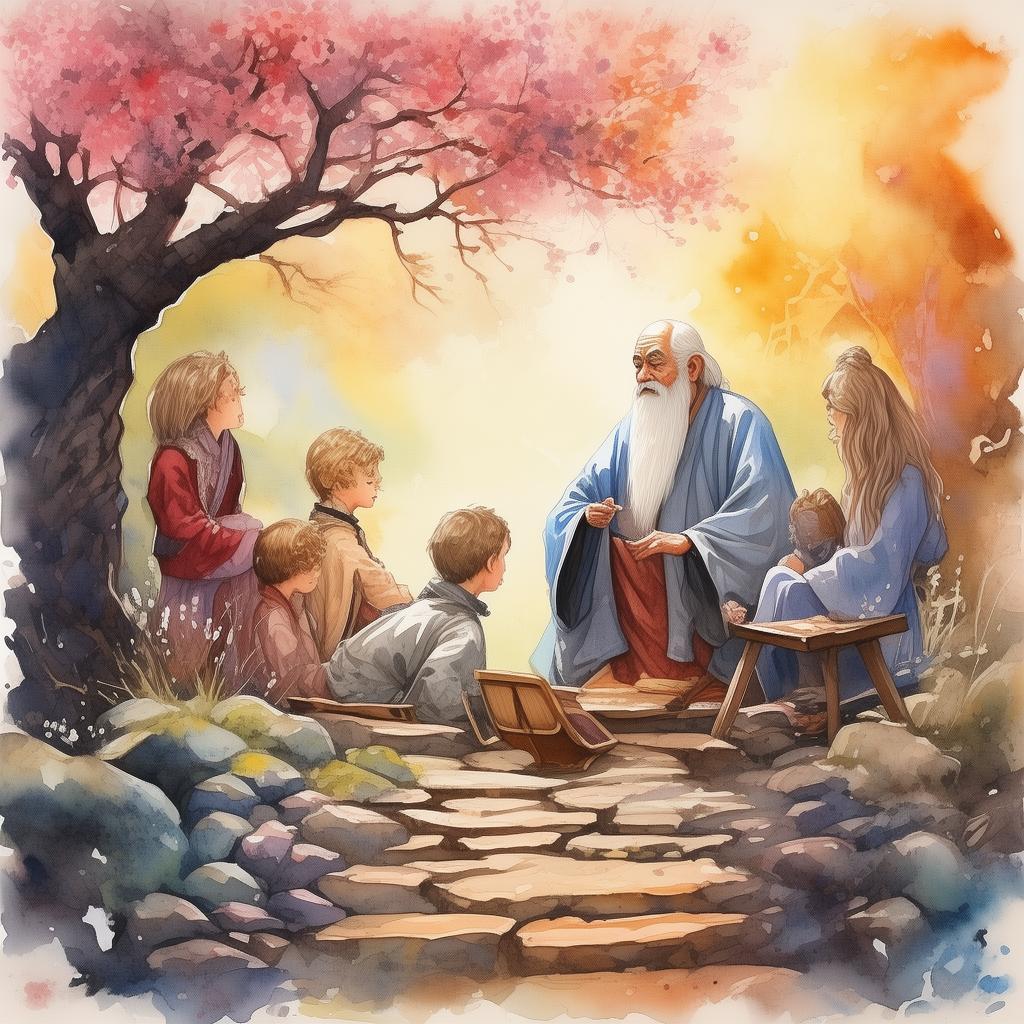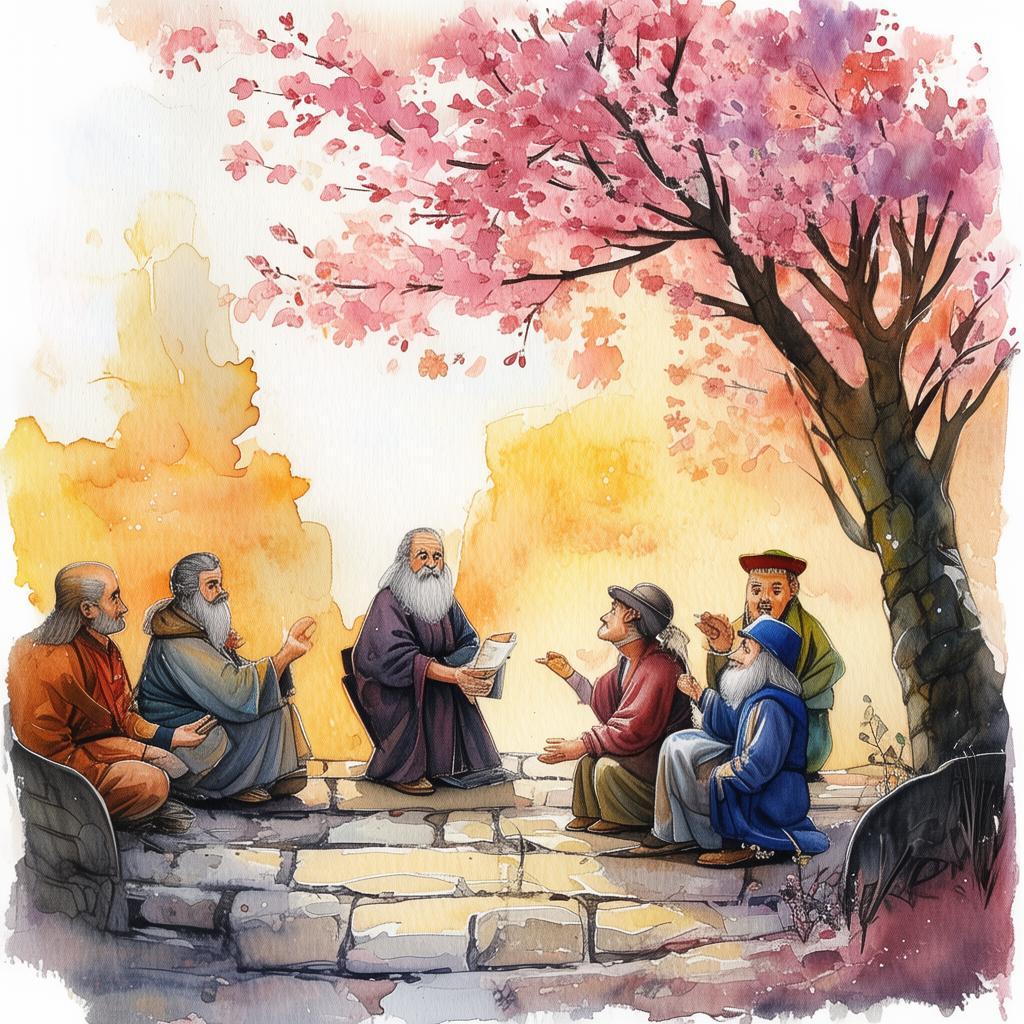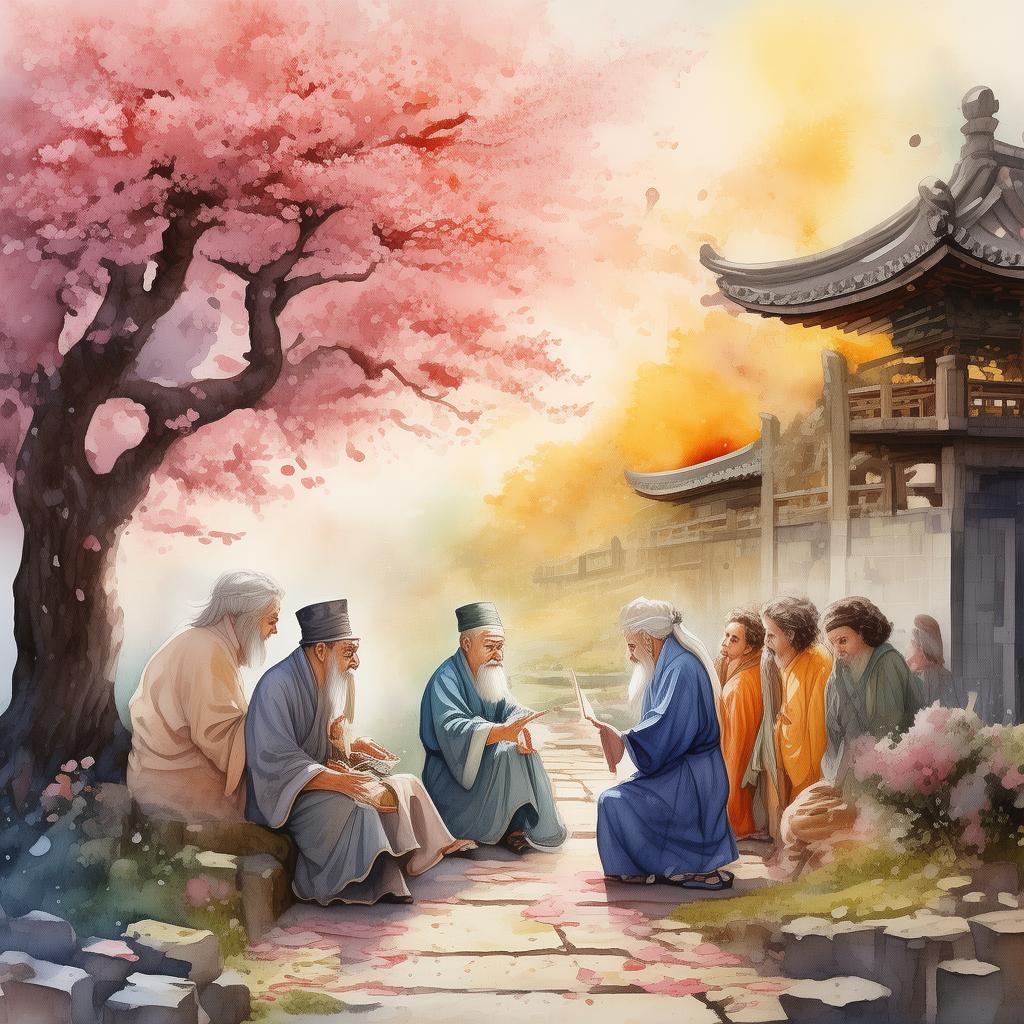Renunciation and Rebirth: The Monk's Redemption
In the serene mountains of a forgotten temple, there lived a monk named Chan. His life was a tapestry of sorrow and grace, woven with threads of past transgressions and present enlightenment. Chan had once been a powerful and corrupt official, a man who had caused untold suffering with his ruthless pursuit of power and wealth. Now, he had renounced the world and become a monk, seeking to atone for his sins through a life of contemplation and service.
The story begins with a somber night in the temple, when Chan sat in meditation, the candlelight flickering against the walls. He had been a monk for many years, but the weight of his past actions still clung to him like a shroud. In the depths of his soul, a voice whispered, "True peace can never come to you until you confront the shadow of your past."
The monk's mind raced with memories of his former life. He saw the faces of the innocent he had betrayed, the lives he had destroyed, and the suffering he had caused. The pain of his actions was a constant companion, a reminder that no amount of prayer or meditation could cleanse his soul.
One evening, as the moon hung low in the sky, Chan had a vision. In the vision, he was standing before a vast, empty desert, the sun baking the earth beneath his feet. In the distance, he saw a figure walking towards him, a monk with a serene smile. The monk handed him a scroll, written in an ancient script. As he unrolled it, the words came to life, revealing his life story, his mistakes, and the path to redemption.
The scroll spoke of the power of forgiveness, the strength of grace, and the beauty of redemption. It spoke of the journey that every soul must take to find peace, to let go of the past, and to embrace the present with an open heart.
Chan awoke from his vision with a start, the scroll still in his hands. He realized that the path to redemption was not just about forgiving others, but also about forgiving himself. He decided to embark on a journey of self-discovery and atonement, to seek out those he had wronged and ask for forgiveness.
The monk left the temple and ventured into the world, seeking the faces of those he had hurt. He visited the families of the people he had betrayed, the prisoners he had falsely accused, and the orphans he had abandoned. With humility and sincerity, he asked for their forgiveness, and in turn, he received the grace of their understanding and compassion.
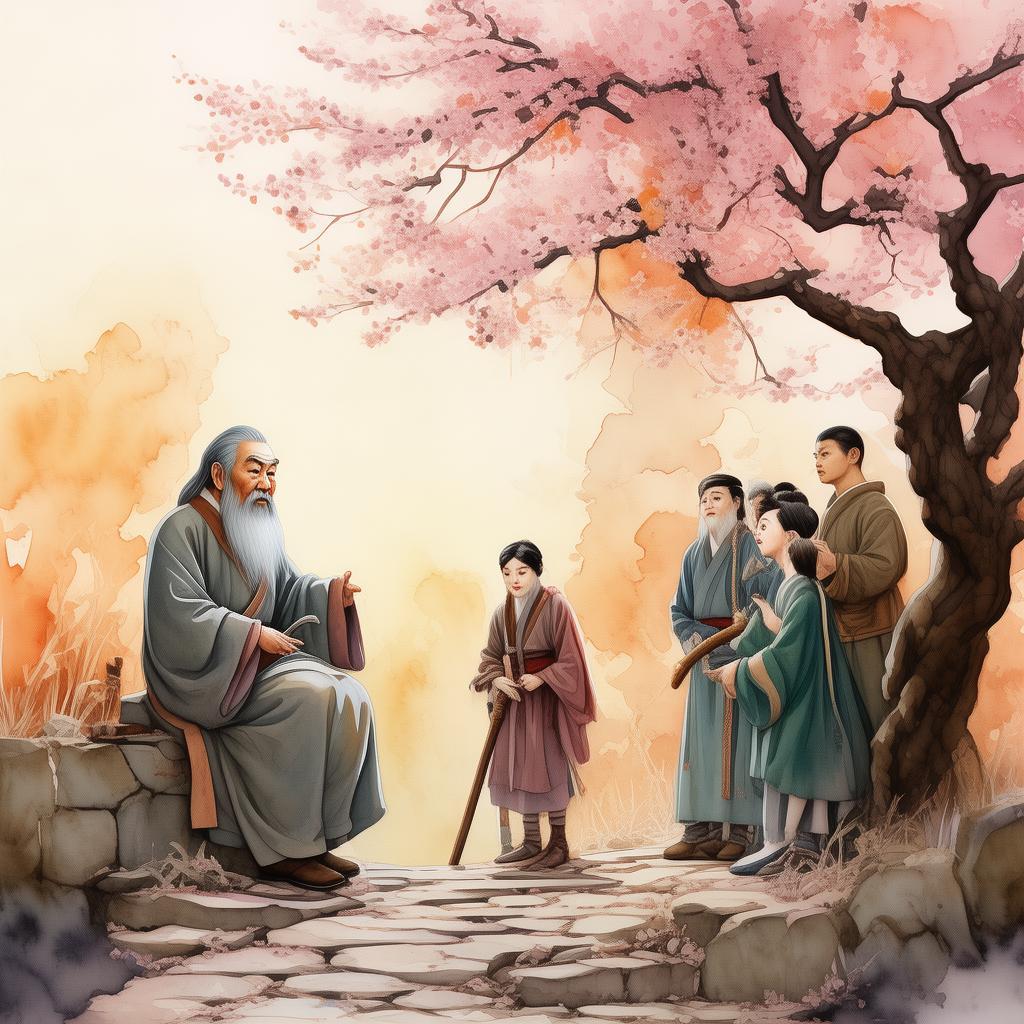
As he journeyed, Chan encountered many challenges. He was met with skepticism and even hostility, but he never wavered from his path. He realized that forgiveness was not a one-way street; it required him to forgive himself as well. Each step he took brought him closer to the truth, to the realization that he had the power to change his destiny.
Finally, Chan returned to the temple, his heart lighter, his spirit renewed. He had faced his past, sought forgiveness, and found a path to peace. He realized that true enlightenment was not about escaping the world, but about embracing it, learning from it, and using it as a catalyst for growth.
From that day forward, Chan's life was transformed. He became a living embodiment of forgiveness and grace, a monk who had transcended his past to become a beacon of hope for others. He taught the principles of redemption, showing that it was never too late to change one's life and find true peace.
In the end, Chan's story became a legend, a tale of sorrow and grace that echoed through the temple and the mountains. It served as a reminder that everyone has the power to transform their lives, to seek redemption, and to find the grace that can bring them peace.
Chan's journey was not just his own; it was a journey that everyone could take, if they were willing to confront their past, seek forgiveness, and embrace the present with an open heart. His story was a testament to the power of redemption, a story that would continue to inspire for generations to come.
✨ Original Statement ✨
All articles published on this website (including but not limited to text, images, videos, and other content) are original or authorized for reposting and are protected by relevant laws. Without the explicit written permission of this website, no individual or organization may copy, modify, repost, or use the content for commercial purposes.
If you need to quote or cooperate, please contact this site for authorization. We reserve the right to pursue legal responsibility for any unauthorized use.
Hereby declared.
